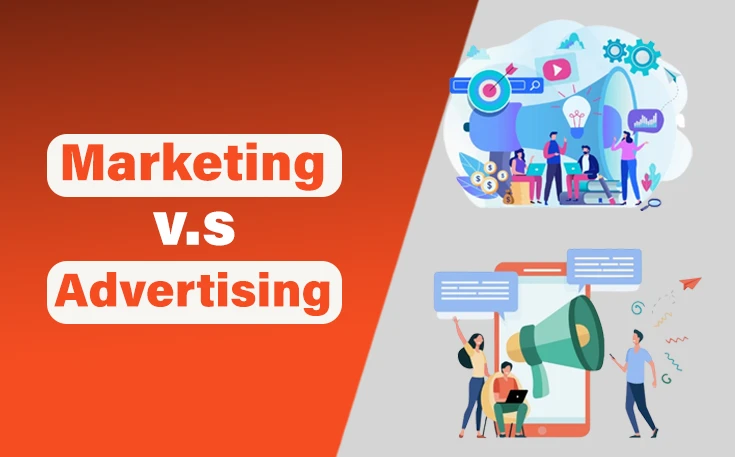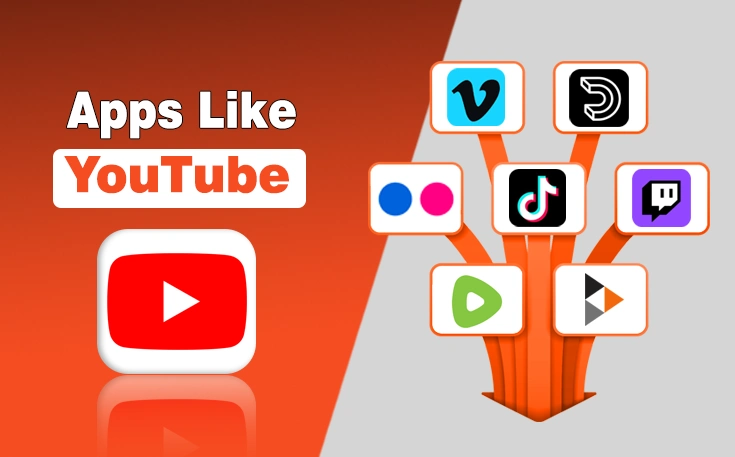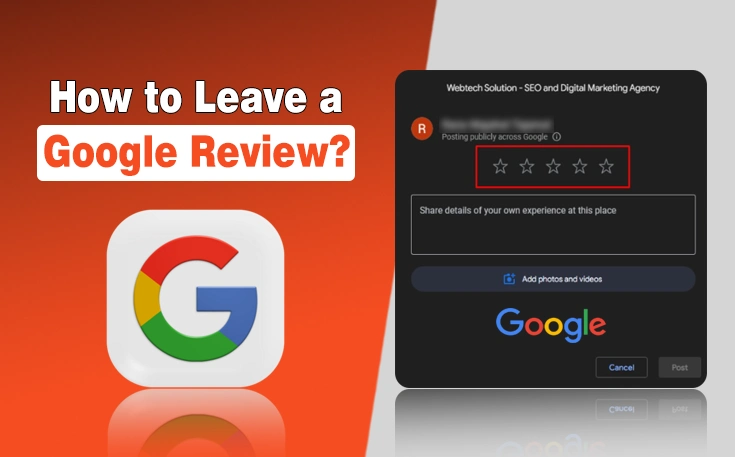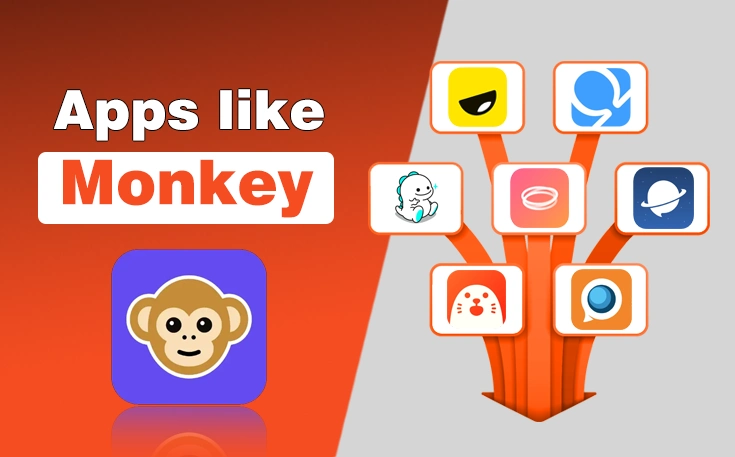Marketing and Advertising are the most commonly used ways to promote businesses, products, and services. Both of them have different meanings and purposes. Marketing focuses more on evaluating customer needs and building a strong relationship with potential customers.
Advertising generates more interest in the audience by promoting through paid methods.
In this article, you will learn about what is marketing vs advertising in detail and understand how these differ from each other.
Marketing Defined
Promoting your brand’s product and service to potential customers is defined as marketing. We use marketing to stand out in the competitive market, by retaining customers in this challenging environment. The primary purpose of marketing is to inform the target audience about your business or products so that they are familiar with your brand’s offerings.
Marketing is a more diverse approach than advertising because it encourages people to purchase the product. Nowadays, people are discussing marketing versus advertising, as some users are saying marketing is a better approach and some prefer advertisement over it. Advertising is a subset of marketing, as it showcases the brand to an audience that looks appealing, which leads to an increase in revenue.

Explanation of Advertising
As mentioned above, advertising may be called a subset of marketing, but it includes social media ads, search ads, commercial TV ads, podcast ads, and more. It is a paid form of marketing. You need to spend money to place an ad, whether you are using traditional channels or various digital channels over the internet.
Digital advertising is more beneficial for businesses, as it provides complete analytical data based on ad clicks, conversion rates, and user reactions. It helps in optimizing future ad campaigns. Users acquire information about the product that you have made changes to or offering it at a discount rate. An ad maker tool can further simplify this process by enabling businesses to create, manage, and optimize their advertisements with
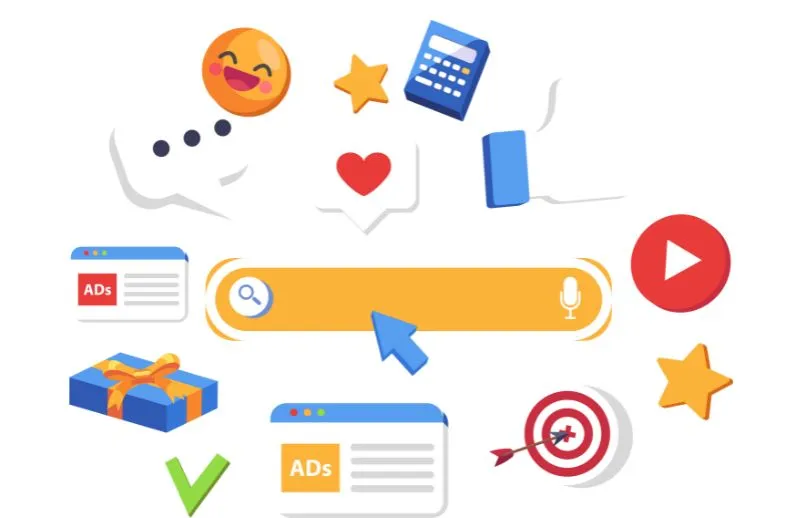
What is the Difference Between Marketing and Advertising?
Although advertising and marketing are distinct from each other, there are also differences between them. Marketing is the process of evaluating the customer’s needs and determining how they can fulfill those needs effectively. Advertising enables brands to promote their products and services via paid platforms. The key difference between marketing and advertising are defined below:
1. Accountabilities
Marketing
The process of marketing involves effective communications and attracting customers by giving them a reason that your brand is different from others. Marketing teams also compare their brand with other competitors, enabling them to identify the current trends in the market.
They also work with other departments to analyze how they can fulfill their customer’s needs and expectations. The other responsibilities include market research and strategy development with the assistance of various marketing tools and strategies that help them achieve customer satisfaction.
Advertising
On the other hand, advertising includes effective customer analysis which enables brands to improve their ad campaigns and develop more advertising strategies to boost the brand reputation. Companies also plan the budget for advertisements to adopt new ways to grab the attention of the audience.
The advertising process also includes ad creation for social media content and TV commercials. It requires proper planning, research, and creation of an advertisement plan on which the advertisement is based. Advertising teams are also responsible for optimizing the advertisement on various channels and monitoring its performance.
2. Objective
Marketing
There is a lot of confusion in this digital world related to marketing vs advertising examples and their objectives. The main objectives of advertising and marketing vary in certain aspects. Marketing focuses more on lead generation to develop interest among potential customers resulting in increasing future sales. It also gains new customers by encouraging them via different marketing tactics.
Many marketers utilize various strategies to maintain their potential customers, which helps them to remain consistent in the market. It also helps gather effective information from customers for further product improvements.
Advertising
The main objective of advertising is to build brand awareness through various means, whether online or offline. It also helps in building the brand’s reputation by informing customers about the new products and discounts offered to them.
The other main goal is to attract customers via competitive pricing and encourage them to purchase the product from the ad. It is also used to promote the brand’s loyalty and establish a strong impression of the brand among customers.
3. Strategies
Marketing
Marketing adopts various organic strategies to grab their customer’s attention. These strategies include content marketing, the creation of blogs and social media channels, etc. You can also improve your business rankings by making it search engine optimized. It helps drive more traffic to the brand’s website or social media channels. Email marketing is also incredibly beneficial for businesses, as it enables them to stay in touch with customers via newsletters, promotions, etc.
Advertising
Advertising also has some strategies, although these are limited. These strategies include traditional advertisements of a product on print media, TV, and radio. Many advertisers have started in-store promotion by advertising on store’s walls, shelves, and racks. They also organize a special rack in the shopping stores and provide numerous attractive offers to customers.
This helps them to influence customers that come in store with a buying intent and encourages them to buy their product. The other advertising strategies also include native advertising, billboards, and advertising via mobile apps. PPC ads are a popular advertising technique brands are using to reach target audiences more effectively.
4. Budget
Marketing
The allocation of the marketing vs advertising budget is based on the activities that you want to perform for your business. Marketing activities may include branding, researching current trends, managing campaigns, etc. All of these activities require money to fulfill the brand’s marketing goals.
The cost may increase if you hire a sales manager or any research analyst who is responsible for all the marketing activities. Many marketers require various software and tools to operate on other marketing activities like monitoring campaigns, automating tasks, customer research, etc.
Advertising
The advertising budget is allocated based on how you want to execute your advertising plans. The cost will increase further if you want to hire some freelancers, contractors, and agencies to create your whole advertisement. Every advertisement platform charges some amount for advertising on their platforms whether it is native, TV, or social media. The cost also increases, if you add an influencer in your advertisement to make your brand more authentic.
5. Result Collection
Marketing
Marketing provides faster results for a brand while marketing campaigns are long-term processes that aim to build a brand reputation among other competitors. Marketing activities include effective evaluation of customer needs and market trends. That is why it is difficult to monitor the results of these campaigns in a short time. You can only observe the quality of the brand by analyzing the audience’s reaction and taking measures accordingly.
Advertising
Advertising generates results faster as you only need to wait for the duration of the campaigns in which these are being implemented. If you run an advertising campaign for a month, you only need to wait a month to monitor its impact. You can also evaluate it for a longer term to check whether it works for a long period or not.
The Bottom Line
Advertising is a subset of marketing, but it is different from marketing. There are many key differences between marketing and advertising, and that’s why people search for marketing vs advertising a lot over the Internet.
Advertising is a paid form of marketing and costs more as compared to marketing. The main objective of advertising is to build brand awareness and inform customers about the new products & discounts offered to them.
Marketing involves effective communication that attracts customers and provides them with a reason that your brand is distinct from other businesses. It is highly effective to completely understand the difference between marketing and advertising.

